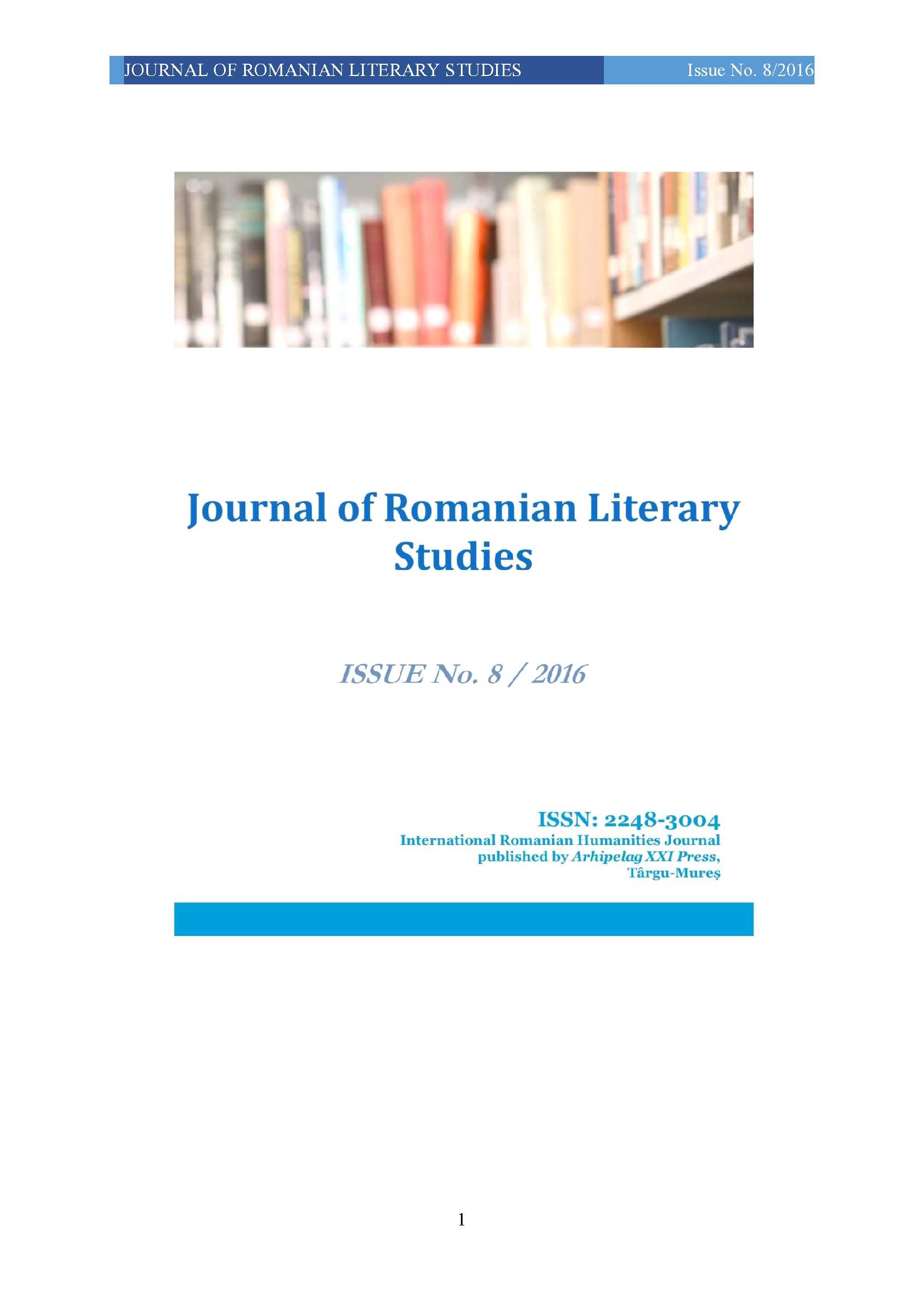THE IMAGE OF NON-COMMUNICATION AND THE METAPHOR OF THINNESS IN “THE MOST BELOVED OF EARTHLINGS” BY MARIN PREDA
THE IMAGE OF NON-COMMUNICATION AND THE METAPHOR OF THINNESS IN “THE MOST BELOVED OF EARTHLINGS” BY MARIN PREDA
Author(s): Mihaela-Gabriela PăunSubject(s): Language and Literature Studies, Literary Texts
Published by: Editura Arhipelag XXI
Keywords: the image of non-communication; the metaphor of thinness; essayistic and reflexive thinking; realist novel; postmodern
Summary/Abstract: The study The Image of Non-Communication and The Metaphor of Thinness in “The most beloved of earthlings” by Marin Preda, constitutes an application on the literature field. The thesis in which direction is argued, is the following:ŗ The most beloved of earthlingsŗ is a realistic prose which emphasizes the communist period, valorizing the urban in an essayistic and reflexive epic formula and being, in the authorřs conception, the novel of Ŗan existence, totally assumedŗ, revealing the unease of a conscience, captive in a time and space which refuses communication, amplifying its suffering and human degradation up to the Ŗhuman meannessŗ. Conclusion: ŗThe most beloved of earthlingsŗ is a documentary-novel, a proof of hard times, in which the problem of the intellectuals of the cities was doubtful, based on the relation between the fellow and historical becoming. In this context, of the changes of values, of communicative obscurity, it is revealed to us the tragic destiny of a Ŗthinlyŗ in history: Victor Petrini, a philosopher, the exponent of intellectuals, in a totalitarian and repressive regime which annihilates his quality of remaining human in all the situations, but who finds in love, the hope, the rescue resort. Thatřs why, his confession, offers him the chance of avoiding existential despair; it is a level to finding his own identity, to recovery. Thereby, he communicates, fighting for the rights of the fellows to truth, spiritual liberty and purity; he communicates with us through his writing, which he wishes to be a revealing confession for the whole humanity, coming from his full existentialism Ŗthe book of a conscience and of an eraŗ, in the opinion of Eugen Simion.
Journal: Journal of Romanian Literary Studies
- Issue Year: 2016
- Issue No: 08
- Page Range: 764-771
- Page Count: 8
- Language: Romanian

